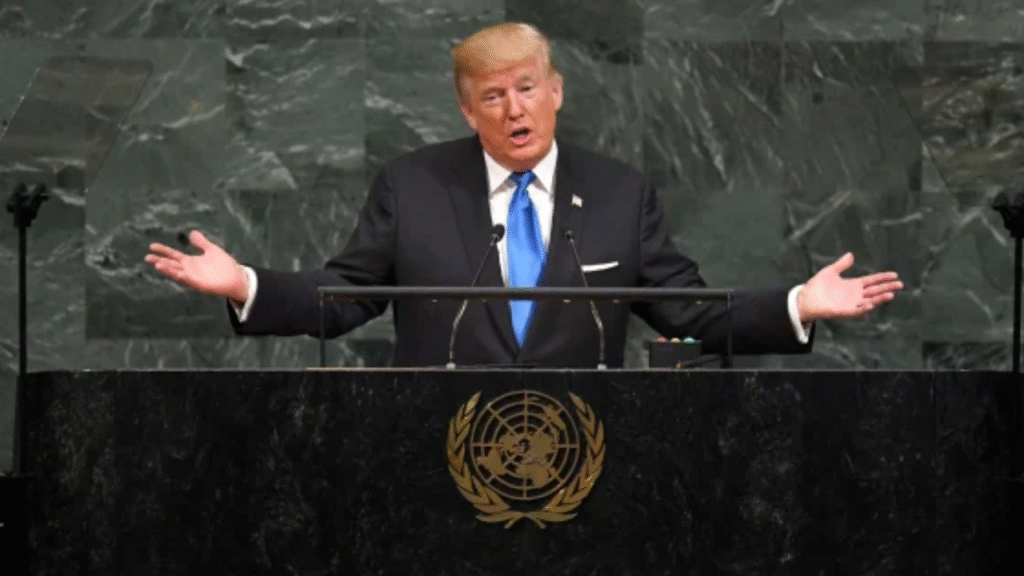In a recent interview on May 7, 2025, President Donald Trump revealed that his administration would be “looking at” immigration reform aimed at potentially regularizing certain individuals currently residing in the United States without legal status. This comment, made during a conversation with conservative radio host Hugh Hewitt, has sparked curiosity regarding the future of immigration policy under Trump’s leadership, particularly after his previous administration’s strict stance on immigration enforcement.
A Shift in Tone
While the President did not offer specific details about the proposed reform, his words signal a possible shift in tone regarding immigration policy. Traditionally, Trump’s administration has been known for its hardline approach to immigration, with a focus on border security and strict deportation policies. His previous policies, such as the controversial “zero tolerance” immigration enforcement and the construction of a border wall, have been met with criticism from immigrant rights advocates and have led to significant legal challenges.
However, Trump’s recent comments open the door to potential reforms that could provide a legal pathway for certain undocumented immigrants currently in the country. This includes individuals who may have been in the U.S. for years but have not yet been able to achieve legal status through traditional immigration processes.
Immigration Reform Under Trump’s Vision
Trump’s statement about “looking at” reform could signal a shift toward allowing some undocumented immigrants to regularize their status. The specifics of any reform, however, remain unclear. It is important to note that this approach could be limited, potentially focusing only on certain groups of individuals, such as those who have established long-term roots in the U.S., contribute to the economy, or meet other criteria for regularization.
While Trump has been associated with anti-immigration rhetoric in the past, his recent comments suggest that his administration may be open to discussing targeted reform, despite his continued emphasis on strict enforcement measures.
Recent Immigration Developments
Trump’s administration has already made significant strides in shaping the nation’s immigration landscape. In February 2025, the administration introduced a new immigration initiative known as the “Trump Card Visa.” This program allows foreign nationals to gain U.S. residency and a pathway to citizenship by investing $5 million in the country. While the program has been criticized for potentially favoring wealthy individuals, it represents a novel approach to immigration that seeks to balance economic incentives with national security concerns (Wired).
Additionally, the Laken Riley Act, signed into law in January 2025, strengthens enforcement measures by mandating the detention of undocumented immigrants charged with certain crimes, such as theft or assaulting law enforcement officers. The law also permits states to sue the Department of Homeland Security for failing to meet immigration enforcement standards .
Potential Impacts
While Trump’s comments signal a willingness to explore immigration reform, it is still unclear how comprehensive or inclusive such reform might be. Given the administration’s emphasis on enforcement and its long-standing opposition to broad legalization for undocumented immigrants, any reform effort is likely to be narrow in scope. The fate of such proposals may ultimately depend on the political climate and the willingness of Congress to cooperate on any comprehensive reform package.
For more information on immigration policies and legal resources, the U.S. Citizenship and Immigration Services (USCIS) website can provide updates on regulations and potential changes (USCIS).
Conclusion
President Trump’s recent comments about exploring immigration reform to regularize some undocumented individuals suggest a potential shift in his approach. While details are limited, this could mark a move away from the strictly enforcement-focused policies of his earlier administration. However, the scope of any reform will likely be narrow, influenced by ongoing political debates. The future of U.S. immigration policy remains uncertain, with any changes dependent on legislative cooperation. For updates, the USCIS website offers the latest information.

